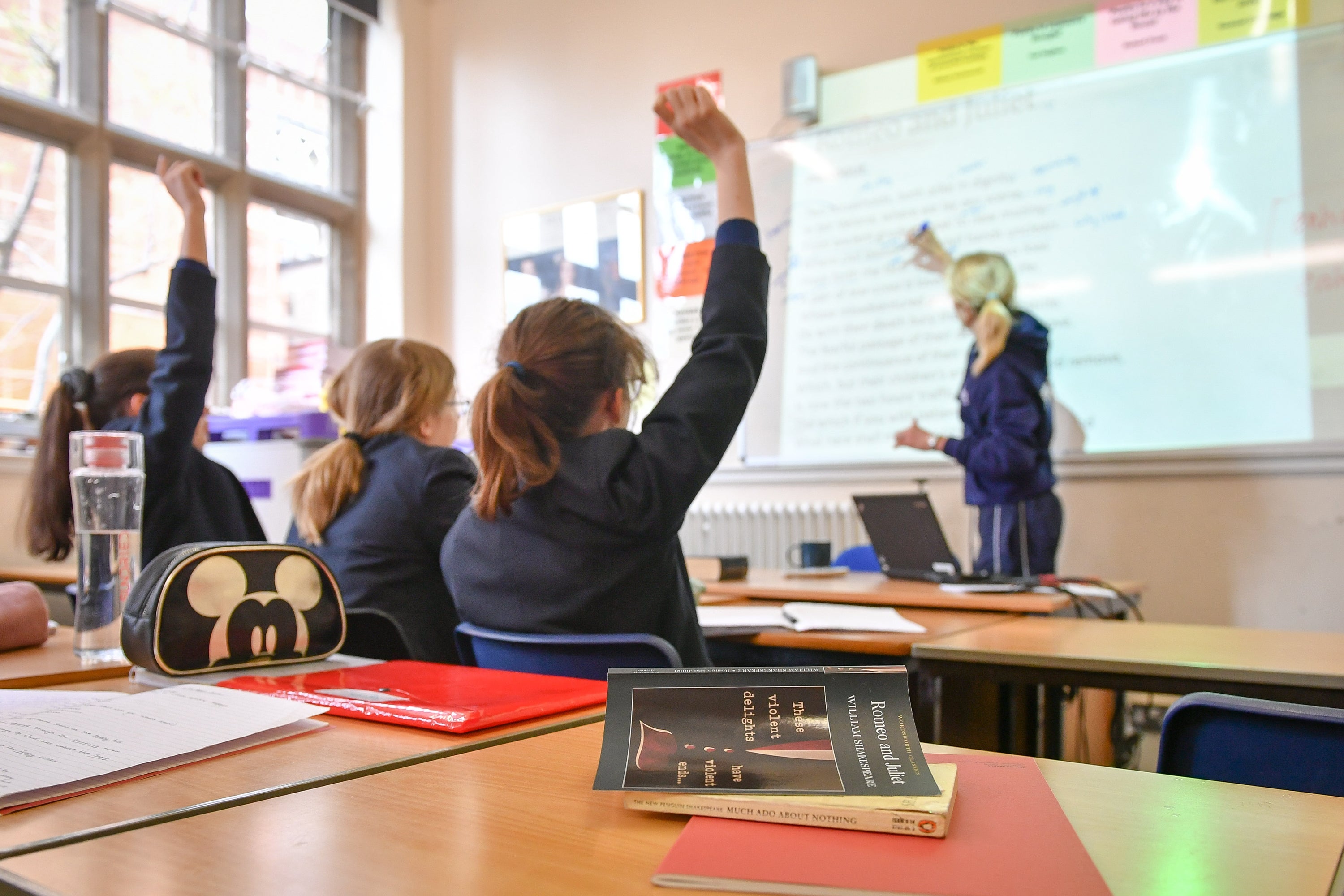Teachers fear Year 6 are emotionally unprepared for secondary school
Teachers say pupils will need more support with behaviour, basic literacy and numeracy skills because of the pandemic.

Your support helps us to tell the story
From reproductive rights to climate change to Big Tech, The Independent is on the ground when the story is developing. Whether it's investigating the financials of Elon Musk's pro-Trump PAC or producing our latest documentary, 'The A Word', which shines a light on the American women fighting for reproductive rights, we know how important it is to parse out the facts from the messaging.
At such a critical moment in US history, we need reporters on the ground. Your donation allows us to keep sending journalists to speak to both sides of the story.
The Independent is trusted by Americans across the entire political spectrum. And unlike many other quality news outlets, we choose not to lock Americans out of our reporting and analysis with paywalls. We believe quality journalism should be available to everyone, paid for by those who can afford it.
Your support makes all the difference.Teachers have raised serious concerns about Year 6 pupils’ readiness for secondary school because of the pandemic, according to a new survey.
Eight in ten teachers are warning that incoming Year 7 pupils will be unprepared for secondary school, citing fears over pupils’ behaviour, ability to focus and maths and English skills.
The survey of more than 1,000 teachers, commissioned by GL Assessment and carried out by YouGov, found 75% were concerned that current Year 6 pupils would not be academically prepared for secondary school.
Most teachers – 79% – said they thought Year 6 pupils would not be socially or emotionally ready to start secondary school, and seven in 10 teachers said their school was organising extra support for new Year 7 pupils to address learning gaps.
Over a fifth said their school would spend more time on classroom and behavioural skills, and a third said that their school would develop a more comprehensive reading programme for the new intake.
Nearly half – 46% – said their school was planning to offer more pastoral and emotional support.
Six in 10 teachers said they were most concerned about pupils’ basic classroom skills, such as focusing on a task and following instructions.
Over half – 54% – were most worried about behaviour, while 38% were worried about basic numeracy, and 52% were worried about pupils’ literacy skills.
The polling of 1,006 primary and secondary teachers also found that two thirds of respondents said they doubted the reliability of the 2022 SATs tests in primary schools.
Four-fifths (82%) said that pupil performance would be impacted by the disruptions of the pandemic with just one in five saying they thought the 2022 results would be as reliable as in pre-pandemic years.
The research findings show that school leaders and teachers, in both phases, have deep concerns for pupils making the transition this year
Primary teachers were more concerned than secondary school teachers, with 71% reporting that SATs would be less reliable compared with 58% of secondary teachers.
A fifth of headteachers were considering recruiting specialist or primary experts to help pupils address learning gaps.
Geoff Barton, general secretary at the Association of School and College Leaders, said: “The research findings show that school leaders and teachers, in both phases, have deep concerns for pupils making the transition this year, both in terms of the impact of the disruption to their learning and their emotional and social preparedness.
“This reflects what our own members have been telling us, particularly in relation to the pastoral support that leaders are finding huge demand for across all key stages.”
He added that the findings also highlighted the proactive work schools were doing to address these issues.
“It illustrates the determination leaders and teachers have for ensuring that these children have the best possible start to their secondary education,” he said.
Crispin Chatterton, education director at GL Assessment, said: “Schools are going above and beyond to tackle any lingering consequences of the pandemic.
“But we shouldn’t be under any illusions that this year’s transition to secondary school will be anything other than extraordinarily challenging for many students and teachers.”